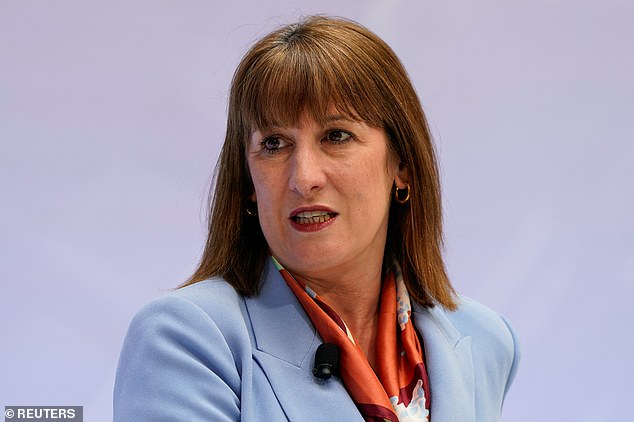Borrowing costs climbed across the world yesterday as investors took fright over rising government debt levels and stagflation fears.
As bleak figures showed UK borrowing hit a worse-than-expected £20billion last month, bond yields on both sides of the Atlantic soared.
Yields on UK 30-year bonds climbed above 5.6 per cent, nearing levels seen at the time of Donald Trump’s ‘Liberation Day’ tariff announcement – which were the highest since 1998.
Trump has since rowed back on the tariffs but investors have turned their attention to the US’s staggering debt pile of $36.2 trillion.
Those jitters worsened after Congress passed what the President described as a ‘big, beautiful’ tax and spending bill that will add about $3.8 trillion to the debt.
Investors are also worried about the prospect of stagflation – the dismal combination of stagnant growth and soaring inflation.

Pressure: In a fresh blow for Chancellor Rachel Reeves (pictured) figures showed UK borrowing hit a worse-than-expected £20billion last month
JP Morgan boss Jamie Dimon, the world’s most powerful banker, told Bloomberg News that the could not rule out such a prospect, saying: ‘I don’t agree that we’re in a sweet spot.’
Yields on 30-year US Treasury bonds hit a 19-month high. Yields on bonds – which are small parcels of government debt – rise when their prices fall.
High yields make it more expensive for governments to borrow and also filter through to the cost of loans to businesses and households.
The latest spike followed weak demand from investors for US bonds at an auction on Wednesday. That was the first auction since Moody’s downgraded US debt from its top AAA rating last week.
Rabobank economist Stefan Koopman described Trump’s tax and spending plan as a ‘deficit blowout’.
He said: ‘Markets are finally taking notice that the fiscal outlook is, actually, completely unhinged.’
Official projections suggest US budget deficits – the shortfall between tax revenues and spending – will approach 7 per cent of GDP in coming years, Koopman said, adding: ‘That’s wartime borrowing – in a peacetime economy with low unemployment.’
Francesco Pesole, FX strategist at ING Bank, said: ‘The view is that, with this bill, Trump is playing with fire with the deficit.’
The surge in US yields prompted a sell-off in bonds globally.
In the UK, worse-than-expected borrowing figures did nothing to soothe the bond market jitters – especially as the Chancellor faces pressure from Labour’s Left to avoid spending cuts.
Yields on German 30-year bonds climbed too. In Japan, they have been trading at close to the highest levels seen since 1999 as its staggering debt pile also comes under scrutiny.
DIY INVESTING PLATFORMS

AJ Bell

AJ Bell
Easy investing and ready-made portfolios

Hargreaves Lansdown

Hargreaves Lansdown
Free fund dealing and investment ideas

interactive investor

interactive investor
Flat-fee investing from £4.99 per month

InvestEngine

InvestEngine
Account and trading fee-free ETF investing
Trading 212
Trading 212
Free share dealing and no account fee
Affiliate links: If you take out a product This is Money may earn a commission. These deals are chosen by our editorial team, as we think they are worth highlighting. This does not affect our editorial independence.
This article was originally published by a www.dailymail.co.uk . Read the Original article here. .


